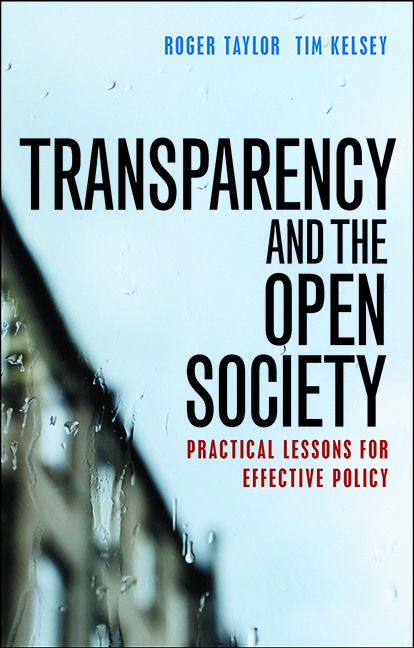3 - Definitions of transparency
Published online by Cambridge University Press: 05 April 2022
Summary
In 2009, Gary Reinbach died in University College Hospital, London, aged 22. The cause of death was liver failure, brought on by 10 years of drinking up to three bottles of vodka a day. When Gary was 11, he was a happy child with a passion for tae kwon do. Then his parents split up, he moved with his mum to a run-down estate and the tae kwon do classes stopped. Life became miserable. At 13 he began drinking.
In the 10 weeks before he died, Gary was in hospital waiting to hear whether or not he could have a liver transplant. At any one time in the UK, there are up to 50 people waiting for every liver that becomes available. There are rules to determine who gets preference. One of those rules is that a patient should only get a liver if there is good reason to believe that they will be able to live an abstinent life after the operation.
The usual way to test whether someone is likely to be able to stop drinking – and therefore qualify for a donor organ ‒ is to send them home for some months and test them periodically to see if they are managing not to drink. But Gary's first encounter with the doctors was when he was already at such a critically ill stage he could not be discharged from hospital and consequently was unable to demonstrate whether or not he could live without alcohol. Under the rules, Gary did not qualify for a liver. The National Health Service (NHS) observed that doctors ‘have to make tough decisions about who is going to get the most benefit and who is going to take best care of this precious gift’.
Some felt the decision was fair. Liz Hunt writing in the Telegraph said it was right that Gary Reinbach did not receive a liver transplant:
Donated organs are the most precious of gifts, and a hugely limited resource. For every person lucky enough to get a new liver, 20 others with liver disease will die. A liver wasted – and I use that word deliberately – on a chronic alcoholic, whatever his or her age, is a chance of life denied to a more deserving recipient.
- Type
- Chapter
- Information
- Transparency and the Open SocietyPractical Lessons for Effective Policy, pp. 55 - 72Publisher: Bristol University PressPrint publication year: 2016



